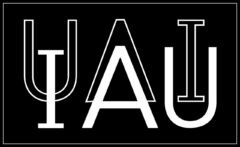In the focus meeting “Measures of luminous and dark matter in galaxies across cosmic time”, we plan to address the crucial question of the nature of dark matter and highlight the necessity of robust mass determinations of galaxies across cosmic time. We plan to bring experts who will discuss the comparison of observational and experimental results with cosmological simulations. We will also open the floor to experts presenting alternative theories of dark matter. It is important to recall that observers have collected a wealth of small-scale observations in the past decade. In the near future, the astronomical community plans to set up new space and ground-based observatories. Therefore, we will dedicate an entire session to discuss the strategies for future facilities and the optimal use of archival data, which, all together, can potentially unveil the true nature of dark matter. The proposed program will have six sessions covering the following topics:
S1: Observed distribution of dark matter
We will discuss the robustness of galaxy masses estimated using various tracers in local and high-redshift Universe, such as stellar and gas kinematics from galaxies (spirals, ellipticals, dwarfs, dwarf spheroidal, satellites), galaxy clusters, gravitational lensing, globular clusters, planetary nebulae, tidal-tails of galaxies. Most importantly, we will focus on the dynamical mass modelling techniques of the aforementioned tracers. In this session, we plan to answer the following:
- How consistent are galaxy mass measurements based on different tracers?
- How robust are galaxy mass measurements against modelling assumptions and degeneracies?
- What are the missing observations to understand the nature of dark matter?
S2: Successes of cold dark matter paradigm
We plan to validate and connect the mass measurements of various tracers with cosmological simulations within the standard model of cosmology/structure-formation. We will also address the interplay between baryons and dark matter, and discuss the intriguing open questions related to galaxy mass assembly and dark matter halo evolution. In particular, we plan to highlight the success of the cold dark matter paradigm. In this session, we will answer the following:
- How accurate are cold dark matter cosmological simulations in reproducing the current galaxy mass measurements across scales and cosmic time?
- To what extent dark matter halo properties at galactic scales are driven by the baryonic processes or the nature of dark matter?
S3: Challenges of cold dark matter paradigm
We continue with the topic introduced in session S2, but we will especially focus on the regimes where the standard model of cosmology faces difficulties in describing observations. In this session, we plan to answer:
- What are the challenges of the cold dark matter paradigm at galactic scales?
- Are these challenges due to technological limitations, or does theory need a refinement?
S4: Constraining dark matter particle candidates with galactic observations
We plan to show the role of robust mass measurements of galaxies in planning, performing and refining particle dark matter searches. We will pay particular attention to discussing the competence of existing and upcoming gamma-ray facilities (such as CTA and Fermi-LAT) and how they plan to test dark matter particle models. With this session, we plan to answer the following:
- What is the impact of having accurate mass measurements on current dark matter particle constraints, and how will this help us to plan successful dark matter searches?
- What is the potential of current and future gamma-ray telescopes to test dark matter particle models with galactic observations?
S5: Alternatives to cold dark matter particles
Given the status of the mass discrepancy problem in galaxies, the efforts of dark matter searches, and the limitation of the cold dark matter paradigm, we will discuss the scope/success of alternative theories to cold dark matter (such as warm, self-interacting, and fuzzy dark matter), including modified theories of gravity. With this session, we plan to answer:
- How accurate are other dark matter models in reproducing the current galaxy mass measurements across scales and cosmic time?
- Do we need alternative theories of dark matter? If yes, are they capable in representing galaxy mass measurements across scales and cosmic time?
S6: The next 10 years of dark matter studies
We will discuss the strategies for upcoming facilities, (1) the designs of instruments that are needed to disentangle the various mass components in the inner region of galaxies across the electromagnetic spectrum and cosmic time, and (2) the sensitivity and design of future experiments needed for dark matter searches. Furthermore, we will discuss the optimal use of archival data in predicting and/or revealing the nature of dark matter, including cutting edge data science techniques such as machine learning. In this session, we plan to answer:
- Which kind of experiments are needed to understand the nature of dark matter?
- How can we use archival data to better understand the mass discrepancy problem and improve the current state of dynamical models?
- Can machine learning help strengthen dark matter constraints?
As this will be the final session, we also plan to discuss big open questions and possible mitigation plans for the problems that emerged during the focus meeting. We will conclude this session with an invited summary talk (including 10 mins prospects, 20 mins roundtable-discussion) and 4 contributed talks.
